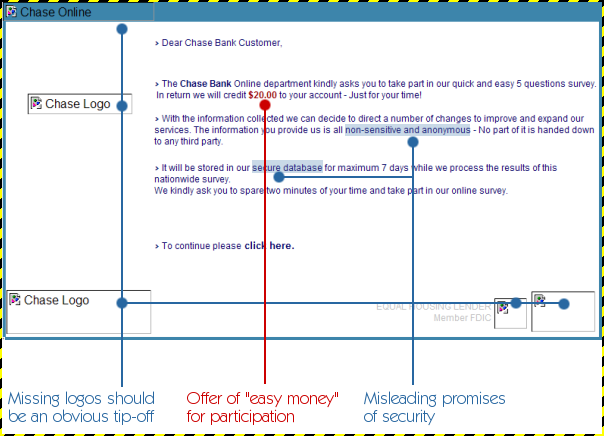Brian Gongol
Urgent this week:
- On most subjects, international trade and cooperation are great things -- but when it comes to online buying and selling, it's best to keep what you do limited to the USA. Whether you're an online seller and get requests from abroad or a buyer who looks for great deals and sometimes finds them overseas, you're at very high risk for anything you do online and abroad. The simple facts are that the law has a very long way to go before it will provide you any real sense of protection, and foreign criminals are acutely aware that they have the upper hand. We don't often realize how much of the economic system here depends upon trust, but there are plenty of crooks living abroad who do realize it and are aggressively trying to take advantage of us.
- If you absolutely must send out a mass mailing, be sure to use blind carbon copies to send them out. It's the least you can do to help protect your friends and family from spam.
- If you own a domain, be sure to keep it current. Domain-name hijackers are everywhere, and they use hijacked sites to distribute spyware.
- Take care not to destroy your computer with static electricity. Wear rubber-soled shoes (if possible) when using your computer, try to discharge static before touching the machine, and isolate your CPU from the ground if at all possible.
Important to do every week:
- Run a backup of your important computer files and store it in a safe location.
- Update your anti-spyware software and run it. If you need free anti-spyware software, download Spybot Search and Destroy.
- Update your anti-virus software and run it. If you need free anti-virus software, download AVG Anti-Virus.
Other recommended security measures:
- Set up a limited-access user account on your computer and use it for most purposes. Only use administrator mode when installing and uninstalling programs.
- Use Firefox, Opera, Safari, or another web browser other than Internet Explorer. They're easy to install.
Online criminal of the week:
- Another week, another phishing attempt:

This disgusting example of crooked activity masquerades as a courtesy e-mail from Chase Bank, asking for your participation in an online survey. It contains several of the usual tip-offs of trouble, including broken image links, a fraudulent incentive ($20 in free money), and misleading promises of security. But if you respond to this e-mail, you won't get $20: You'll only have given away your credit-card information to a criminal. - For the record: 54 spam messages received in one hour this Friday, for a Spam Index of 9072
Other helpful links:
- Listen to the WHO Radio Wise Guys Saturdays from 12:00 to 2:00 Central via streaming audio or on 1040 AM.
- Get a professional website for under $500 at NorthernRepublic.com.
